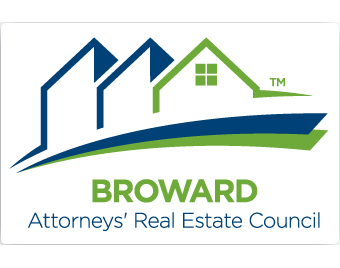Every adult should have a comprehensive, personally tailored estate plan in place. Yet, the AARP reports that 60% of Americans lack a will, let alone other estate planning documents. Without a proper estate plan, you are vulnerable. A properly designed estate plan should protect you, your family, and your finances. At The Law Offices of Odelia Goldberg, we are committed to providing solutions-driven estate planning representation. In this article, our Fort Lauderdale estate planning lawyer answers 10 of the most common questions about estate planning in Florida.
Although a will is not required as a matter of law, writing a will is crucial for anyone who wants to ensure that their assets and property are distributed according to their wishes after they pass away. In Florida, a valid will allows you to control the distribution of your estate, name a guardian for your minor children, and appoint an executor to manage your estate’s affairs. It is the foundation of a comprehensive estate plan.
If you pass away without a will in Florida, your estate will be distributed according to the state’s intestacy laws. Put another way, you will lose control over what happens to your own property. State law takes over. In general, the result is that your assets will be divided among your closest living relatives, such as your spouse, children, or other family members. Of course, this may not align with your wishes. Further, probate without a will can be a time-consuming, high-conflict process.
The executor of your will should be a trusted and responsible person who can effectively manage your estate. The individual you choose will be responsible for gathering your assets, paying your debts, and distributing your estate according to the terms of your will. You may choose a family member, friend, or professional, such as a lawyer or financial advisor, as your executor. Be sure that you select a person who is truly up for the role.
Yes. A will is a must—but it is not a complete estate plan. In addition to a will, you should also consider having a durable power of attorney (POA), healthcare surrogate designation, and a living will. These documents allow you to designate someone to make financial and healthcare decisions on your behalf if you become incapacitated and outline your end-of-life care preferences. Depending on your situation, you could also benefit from setting up a trust.
A power of attorney (POA) is a legal document that allows you to appoint someone to act on your behalf in financial and legal matters. The person you designate, known as the agent, can handle tasks such as paying bills, managing investments, and signing legal documents. In Florida, you can choose to grant limited or broad powers. The POA may be effective immediately or only upon your incapacity.
It might. There is a common misconception that trusts are only useful for the most wealthy of people. In reality, there are many people and families who can benefit from using a trust as part of their estate plan. A trust may be useful for asset protection, tax planning, or to avoid probate. There are several different types of trusts. They allow people to have greater control over how their assets are managed and distributed. Further, trusts can be tailored to your specific needs and goals.
Yes, beneficiary designations are an essential part of your estate plan. These designations determine who will receive assets from life insurance policies, retirement accounts, and other financial instruments upon your death. Notably, properly set up beneficiary designations can help certain types of assets avoid the probate process—thereby saving time, money, and stress. Be sure to review and update your beneficiary designations regularly,
Estate planning is complicated. Unfortunately, too many people make avoidable mistakes that undermine their own best interests. Here are five of the most common estate planning mistakes to avoid in South Florida:
Yes, you can change your estate plan at any time as long as you are mentally competent. You may need to update your plan due to life events, changes in your financial situation, or changes in the law. Consult with an experienced Fort Lauderdale estate planning attorney. Your lawyer can help you ensure that your current estate plan meets your needs.
The right estate planning attorney is an experienced attorney with deep knowledge of Florida law and a commitment to put the time and resources in to protect your rights and your interests. You should not hesitate to set up a confidential initial consultation with a Florida estate planning lawyer to learn more about them.
Schedule a Confidential Consultation With Our Fort Lauderdale Estate Planning Lawyer
At The Law Offices of Odelia Goldberg, our Fort Lauderdale estate planning attorney is a diligent, experienced, and solutions-focused advocate for people and families. If you have questions about estate planning, we are here as a legal resource. Give us a call now or contact us online to arrange your strictly confidential, no-commitment case review. With a law office in Fort Lauderdale, we provide estate planning representation in Broward County and throughout South Florida.







The information on this website is for general information purposes only. Nothing on this site should be taken as legal advice for any individual case or situation.
This information is not intended to create, and receipt or viewing does not constitute, an attorney-client relationship.
© 2025 The Law Offices of Odelia Goldberg. All Rights Reserved. Privacy Policy. Web Development by IWD Marketing